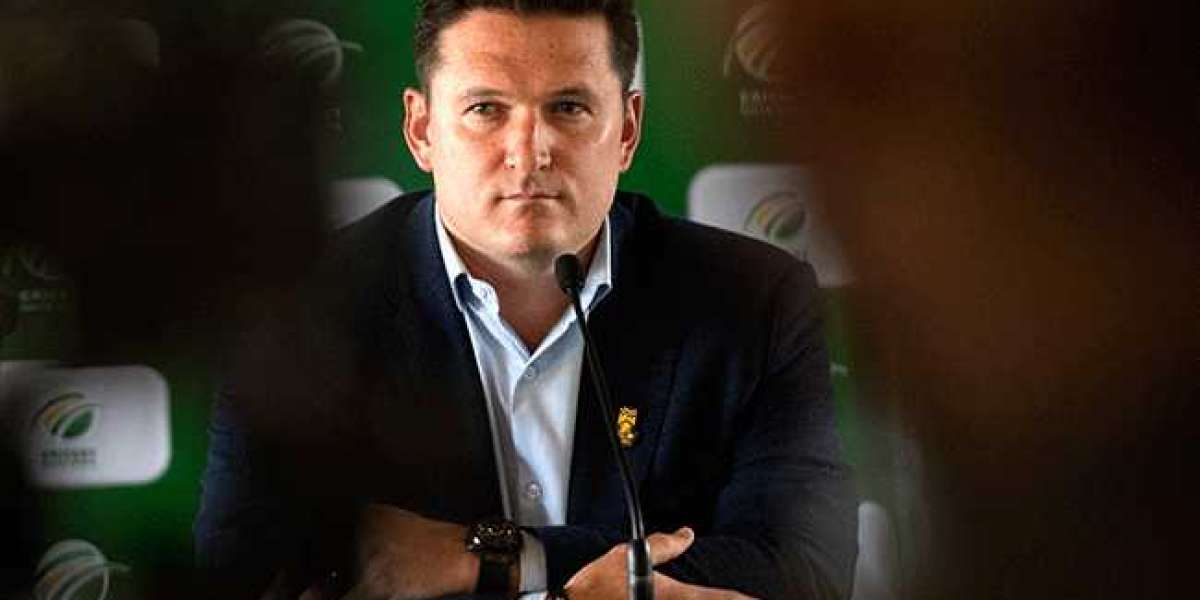The officers at Standard Bank, Absa and Sasfin Bank have been on the payroll of Mohamed Khan, a money launderer working for cigarette magnate and smuggler Simon Rudland, thousands of documents and interviews with Khan’s former colleagues reveal. These officers would enable dubious money transfers from Khan’s companies and remove evidence from the computer systems, all while getting monthly payments from Khan.
Al Jazeera Investigations | Gold Mafia Episode 1 - The Laundry Service
The revelation is part of Gold Mafia, a four-part investigation by Al Jazeera’s Investigative Unit (I-Unit), which shows how multiple gangs smuggle gold from Zimbabwe and use it to launder vast amounts of money. The documents obtained by the I-Unit include ledgers, contracts and emails showing the process Khan and Rudland used. The I-Unit also interviewed Dawood Khan, Mohamed Khan’s brother, who helped forge documents; another of Khan’s former partners, who we are calling Jimmy to protect his identity; and Khan’s ex-wife Wardah Latief.
Al Jazeera Investigations | Gold Mafia Episode 2 - Smoke Mirrors
Mohamed Khan, who goes by the nickname Mo Dollars, heads PKSA and Salt Asset Management, South Africa-based financial services firms. Among their biggest clients is Zimbabwean millionaire Simon Rudland, owner of Gold Leaf Tobacco, one of Southern Africa’s largest cigarette brands. South African revenue authorities have accused Rudland of evading taxes by selling cigarettes on the black market. "The illicit cigarette trade earns rand cash. So he gets a ginormous amount of rand cash," fellow Zimbabwean gold smuggler Ewan Macmillan told Al Jazeera’s undercover reporters, who were posing as Chinese criminals looking to launder unaccounted cash. "He has the same problem in legitimising his money as you have." Mo Dollars does this for Rudland; cleansing his dirty money using a complicated web of front companies, fake invoices, bribery and gold. At the centre of this scheme is a set of companies with bank accounts in different parts of the world – Aulion in Dubai, Vantage Leaf in Mauritius, Velmont Valley in Switzerland and Liberty Gold in the United States.
How Zimbabwe uses gold smuggling to evade sanctions choke
Simon Rudland set up the negotiations and protocol of a vast money laundering network which used five Sasfin banking officials to sneak at least R3bn in smuggled cigarette money out of the country, Sars investigators found. In this second article detailing the Rudland transnational plunder network, Scorpio focuses on the very first instructions Rudland and his money launderer allegedly issued over three days in September 2016 to test the Sasfin waters. All the while duping Sars and the Reserve Bank.
The South African Revenue Service (Sars) seems convinced that buccaneer capitalist Simon Rudland is pulling the strings of a transnational plunder network he established around cigarette manufacturer Gold Leaf Tobacco Corporation (GLTC) in 2016. Rudland “initiated and established protocols” for sneaking billions of rands in illicit cigarette money out of the country, Sars argued in a successful preservation application to the Pretoria High Court last week Wednesday.
Sars said Rudland was “directly involved in issuing instructions on behalf of GLTC”, directing the amounts of money to be sneaked through commercial bank Sasfin’s system to foreign jurisdictions like Dubai, Switzerland and Mauritius. He “took steps to circumvent the detection of these deposits and payments” from the Reserve Bank (Sarb) and Sars. Rudland also negotiated fees with the network’s money launderer and worked in concert with his confidantes to dupe the authorities, investigators argued. And once the plunder scheme seemed to be running on oiled wheels, Rudland handed over the reins but was — significantly — kept up to speed.
Based on the high court order, Sars has since Friday taken control of the bank accounts and all other local assets owned by GLTC, Rudland and his co-director Ebrahim Adamjee. Adamjee, “knew or ought to have known” about the Sasfin shenanigans, investigators said. In a shocking letter dated 31 March 2022 and attached to Sars’ papers, Sasfin’s COO Rodger Dunn admitted to investigators that the bank’s probe “evidences deletion of transactions” and, as at that date, Sasfin struggled to salvage all of the information requested by Sars. When Scorpio phoned Dunn on Friday, he was all about “protocol” and referred questions to CEO Michael Sassoon. Sassoon said, “…I think we have given everything to Sars that was needed… obviously we are very disappointed of employees acting in this way.”
Sassoon was at pains to say that Sasfin is “100% cooperating” with Sars, gave investigators all subpoenaed documentation and asked their bank’s officials to act as witnesses. [Sars will return to Sasfin, its employees and the deletion of banking transactions in the third story in this series.] In turn, Rudland and Adamjee denied all wrongdoing during a tax inquiry registered in terms of s50(1) of the Tax Administration Act. They pointed the finger at the plunder network’s money launderer Mohammed Khan, arguing he “hijacked” GLTC’s accounts. Their tax affairs are in order and any other dodginess happening in their accounts had nothing to do with them, they told investigators. Sars remained unmoved. Investigators told the court the revenue service is in the process of clawing back R1-billion in undeclared income tax and VAT from GLTC for tax years 2017 and 2018 and VAT period of September 2016 to July 2017 respectively.
GLTC’s assets are not enough to pay this tax debt, and therefore Rudland and Adamjee as the directors will have to foot the bill. Understatement penalties and interest can rack up GLTC’s tax bill to R3-billion. In arguing their case, contradicting especially Rudland’s assertions of innocence, investigators red-flagged the first transaction in which Rudland and Khan allegedly tested their Sasfin scheme. PKSA and Salt Asset Management, which send the money, claim to be doing so in lieu of imports of tobacco, clothes and gold – imports that never actually enter South Africa. "It’s Simon laundering that money," said Dawood Khan, referring to Rudland. "Money that was not reported through the legitimate streams, and needed to be moved." To "move" that money, he said, his brother Mo Dollars bribes influential officers at several South African banks so no red flags are raised during the transactions. The bribes range from monthly payments to paid holidays and house renovations, according to Latief, Mo Dollars’s ex-wife, and documents accessed by Al Jazeera.
Sasfin Bank, which caters to small businesses is one of the institutions that Mo Dollars infiltrated. Hussain Choonara, who was in charge of the bank’s foreign exchange payments, was listed as receiving $1 600 per month, ledgers maintained by Mo Dollars and his aides show. "Mohamed and Hussain had a magnificent relationship," Dawood Khan told Al Jazeera, adding: He would basically ensure that his staff is pushing through this work unquestioned. He was like the most valuable jewel or component, if I can put it that way, in Sasfin, to ensure the success of the money being laundered. Choonara would also tell Mo Dollars who else he needed to bribe at Sasfin, Dawood Khan claimed.
Among them was Lulama Kene, an IT technician who ensured fraudulent transactions were wiped from the bank’s digital system. Choonara left Sasfin in 2019. Others on Mo Dollars’s payroll included Cheryl Simons, who worked in the compliance office, and Brandon Marshall, the head of onboarding new business customers, the ledgers suggest. Kene and Simons were each paid $800 a month, while Marshall received $3 200 every month. Marshall and Kene have left Sasfin, and the bank suspended Simons after allegations about her role in helping Rudland launder his money first emerged. "Friday afternoons after lunch they get their money," Latief recalled. But it wasn’t just money, she said. "He also used to give them holidays overseas. And he used to renovate their houses for them."
When Lulama Kene deleted the first GLTC transactions from the Sasfin banking system, he was a 32-year-old Temenos Transact banking software guru. This, in tech-speak, is a T24 applications specialist. Kene had access to the master key, if you will, to Sasfin’s banking system. He now works for Access Bank, a Nigerian-based commercial bank. Kene has an elaborate tattoo on his right forearm that involves a compass and a world map. This is a new addition though, seemingly after he left Sasfin. Self-styling as an influencer of sorts, Kene is fond of posing in front of cars. Sometimes in clothing embroidered with his initials designed as a logo, which he is even more fond of using. Kene did not respond to three telephonic attempts to contact him, nor to a series of WhatsApp messages requesting an interview.
According to Sars, the colourful Kene was an important cog in the plunder network. Investigators base this on reams of WhatsApp conversations between Kene, Khan, Rudland and Howard Baker, a close business partner of Rudland. Sars further submitted Sasfin’s attempt at reconstructing the GLTC bank statements, as well as accurate bank statements from other commercial banks. Sars further leaned on information gathered from search and seizure procedures, including of Khan’s series of companies, GLTC’s auditors Alan Leviton and cash-in-transit company AMFS and Rens in Konant.








